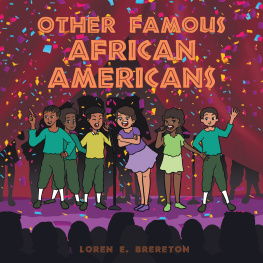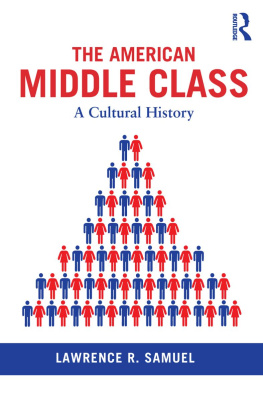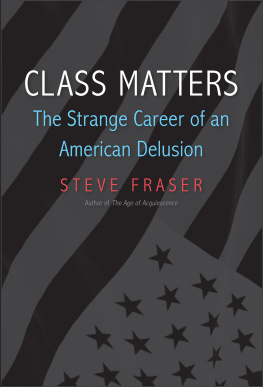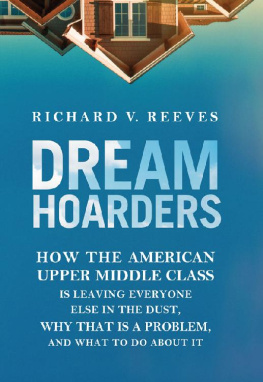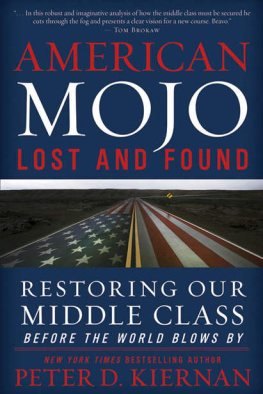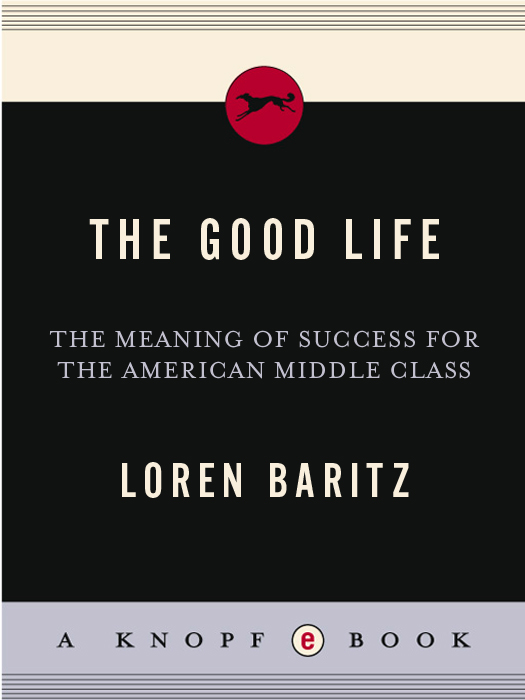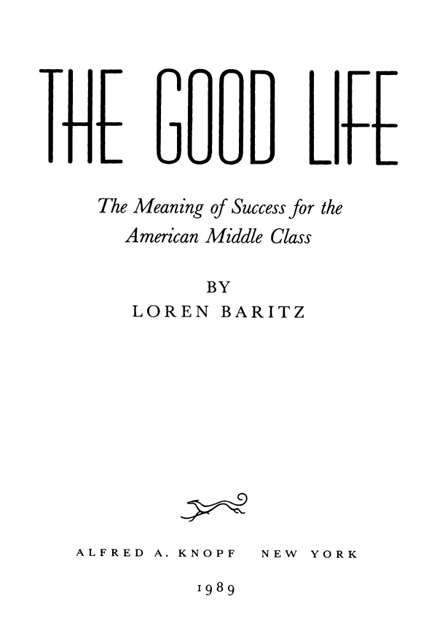ALSO BY LOREN BARITZ
The Servants of Power: A History of the Use of Social Science in American Industry (1960)
City on a Hill: A History of Ideas and Myths in America (1964)
Backfire: A History of How American Culture Led Us into Vietnam and Made Us Fight the Way We Did (1985)
EDITOR OF :
Sources of the American Mind (1966)
John Taylors An Inquiry into the Principles and Policy of the Government of the United States (1969)
The Culture of the Twenties (1970)
The American Left: Radical Political Thought in the Twentieth Century (1971)
THIS IS A BORZOI BOOK PUBLISHED BY ALFRED A. KNOPF, INC.
Copyright 1988 by Loren Baritz
All rights reserved under International and Pan-American Copyright Conventions. Published in the United States by Alfred A. Knopf, Inc., New York, and simultaneously in Canada by Random House of Canada Limited, Toronto. Distributed by Random House, Inc., New York.
Owing to limitations of space, all acknowledgments of permission to reprint previously published material will be found following the index.
Library of Congress Cataloging-in-Publication Data
Baritz, Loren.
The good life,
the meaning of success for the American middle class.
1. Middle classesUnited StatesHistory. 2. SuccessUnited States. 3. United StatesSocial life and customs. I. Title.
HT690.U6B37 1988 305.550973 88-45219
eISBN: 978-0-307-83214-6
v3.1
To Phyl, with love
Contents
Acknowledgments
I am obliged to friends and colleagues for reading this manuscript, telling me what was wrong, how it could be improved, and offering moral support. I am especially grateful to Christopher Lasch, Lawrence Levine, Bruce Laurie, Milton Cantor, Murray Schwartz, Gerard McCauley, and Ashbel Green. Harriet Sigerman began as my research assistant and quickly became a colleague who participated fully in every phase of the evolution of this book. Phyllis Baritz, as usual, read and improved the manuscript while enduring ones obsessions, almost always with loving good cheer.
L.B.
Introduction
Searching for the American middle class is a little like looking for air. It is everywhere, invisible, and taken for granted. The middle class, however, can be found if it is defined beforehand, for then it is possible to track the qualities identified as significant. This, of course, is a form of deduction, more acceptable to Sherlock Holmes than to modern science, but necessary if we are to give shape and substance to air.
In a land where poverty and injustice have proved ineradicable, where economic busts as well as booms seem inevitable, it is wrong to say that the middle class was or is the whole American storyaside, of course, from the obvious fact that it is hardly unique to America. Appearing throughout commercial Europe in the seventeenth century, and in pockets even earlier, the class of merchants, clerks, and ministers began to think differently about themselves and their families. And yet, given that the American middle class does share values and habits with its counterparts of other times and places, it is in many respects distinctive and sui generis. Widespread economic opportunity and, especially, immigration have unquestionably made the American story different.
Most important, Americas spirit and tone, its historical mythology and official aspirations, political bent, educational arrangements, the centrality of business enterprise, as well as the dreams of the vast majority of its people, derive from the psychology of the great imperial middle. Although by no means have all Americans been middle-class, that is what most have wanted to be, and they have conducted themselves in ways acceptable to the norm before they have had or even after they have lost the price of admission. Americans, especially, have blurred strictly economic class boundaries by reason of their hopes, not necessarily their wealth. The widely perceived class unconsciousness of the American people is a consequence of a class psychology characteristic not only of actual members of the middle class but of aspirants to that status, and overall, therefore, of the great majority of the nation.
There are two different ways to define class, both sensible, but leading to different results. Many analysts, following Marx, define this shaggy beast by its objective condition, that is, by what it owns and how much money it has accumulated, and by its opposition to people who have less. These scholars seek statistical measurements of income by generation, education, occupation, and region. One of my major purposes in the present work is to show that such apparent precision does not adequately illuminate what has happened in America.
For I believe that class, especially in America, is a state of mind, defying useful measurement, allergic to the supposed charms of the inchworm. This conception, more in the tradition of Flaubert than of Marx, stresses detail, vignettes, argument, and tonea focus on the individualnot calculation. It seeks to locate private life, especially intensely personal desires, as the stuff of middle-class existence, nowhere shown better than in Madame Bovary. This way to attack the problem assumes the necessary economic context for its subjects, and occasionally even attempts to make connections between psychological and economic realities; but it focuses on the everyday life of its subjects, not only on their wallets. Of course, money is no mere detail, and the attitude of the middle class toward it is a major piece of business, as Flaubert understood better than anyone. A full definition of the subjective middle class is spread throughout this book.
America seemed made to order for the fullest expression and deepest satisfaction of people who wished on their own to remake, not the world, but their own lives and those of their children. If the world was remade in the process, and the middle class hoped it would be in its own image, that would be a fine if peripheral consequence. For the people of the middle, life was personal, not historic, to be measured most accurately by the neighbor, not the philosopher, cleric, or politician: private lives in privately owned space, with individuals separately exploring the meaning of the good life. For more people than ever before in the history of the world, a middle-class personality eventually emerged. That is what this book is about.
It is because class membership is so largely a matter of perception that the middle class has withstood every challenge, at least in America in the twentieth century. The middle class absorbed or dismissed its many critics, often changing its collective mind a bit in the process, but never abandoning its dream, its plans for the childrens future, its faith in the nations fundamental soundness. It was no use for intellectuals on the left or moralists on the right to lecture middle-class Americans about how they were acting against what others perceived to be their own best interests. They knew what they were interested in, and would not be dissuaded by the logic or disapproval of others.
To discuss what they were interested in, I have tried to focus this book on what they, not others, were hoping, thinking, and doing. But how is it possible to get under such a collective skin? I have generally excluded high culture or literaturenot often experienced by middle-class Americansas a key to the middle class; and, in any case, America has not yet found its Flaubert or Thomas Mann. After too many false starts, my criterion for judging what should be excluded finally became clear: if the middle class was uninterested in an event, person, or institution, I followed its lead. I tried to focus on habits of living and working, on assumptions about value, on desires and goals, and not on great institutions, from which middle-class Americans usually recoil. To sneak up on private life, I have used census materials, polls, popular magazines, and memoirs, along with a large and excellent body of scholarship. I needed to understand the details of domesticity, as sometimes revealed in advertising, radio, movies, fashions, television, the constant redefinition of sex and sex roles, marriage, work, and raising children.


